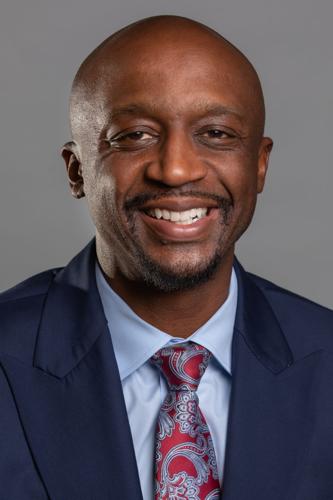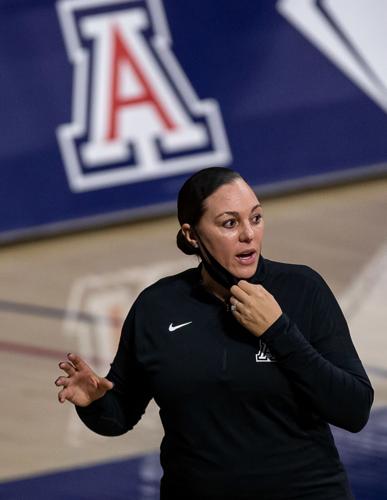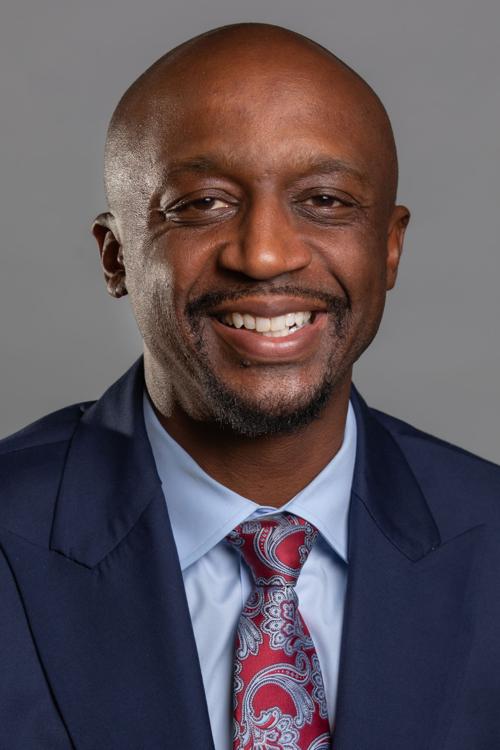Because of COVID-19, fans weren’t allowed inside McKale Center to see the Arizona women’s basketball team in person this season.
Except one.
“I probably wasn’t supposed to,” Jason Terry said, “but I snuck in a couple games this year.”
Terry, an assistant coach on the UA men’s team, had plenty of reasons to venture just a bit outside his office door. Terry’s Dallas-area AAU girls program produced players at both UCLA and USC that he wanted to see play against the Wildcats. They used to compete against several of the current UA players, too.
And, of course, Terry closely follows the Wildcats’ star player.
“I’m an Aari McDonald fan,” Terry said. “I’ve grown a relationship with Trinity Baptiste who transferred in (from Virginia Tech) — my teams used to play against her when she was in high school, and Cate Reese was another one we used to play against when she was in Texas. So I kind of feel I’ve got a little bond with them by seeing them over the years.”
All that is on top of the personal bond Terry has had with coach Adia Barnes since they had parallel standout careers for Arizona in the late 1990s.
Terry was a sophomore sixth man helping the Wildcats men win the 1997 national championship when Barnes was a junior leading the UA women to the NCAA Tournament’s second round.
“After we won the championship, we got a message from Adia congratulating us and telling us to Bear Down,” Terry said. “She’s a true Wildcat.”
The next year, both the UA men and women played into the second weekend of the NCAA Tournament, while Barnes was the Pac-10 Player of the Year. The year after that, 1999, Terry was named men’s Pac-10 Player of the Year.
Two decades later, they are intertwined again at Arizona — and Terry isn’t a bit surprised to see how it all worked out.
“A couple of times she let me join their workouts and you could tell that she was a pro,” Terry said of his early UA playing days.
“She was gonna be bound for greatness. You could tell she kind of had that coaching pedigree. Just her demeanor, the way she handled herself, the way she handled her teammates.”
The two stayed in touch during their playing careers, especially when Barnes played for the WNBA’s Seattle Storm from 2002-04. Terry spent summers in his Seattle hometown while playing for the Atlanta Hawks.
“We became friends,” Terry said. “In the summer I would always go home and work out and it would be their season, so I would go to the Storm games. And then she started doing broadcasting and coaching in the Seattle area, so I would always see her there. We’d have great conversations and that’s how that relationship continued to evolve.”
The next step was no surprise, either. Barnes joined the Washington coaching staff as an assistant in 2011 … just two years after Terry had started the Lady Jets club while playing for the Mavericks. He eventually settled in Texas year-round.
“I started to see her out recruiting,” Terry said. “I said, ‘Oh, you’re coaching at U-Dub now?’ She said, ‘Yeah, I am. Matter of fact, you got any players?’ “
Barnes didn’t wind up with any of them, but she did manage to mentor some anyway.
“A couple of girls from my team went to her elite camp and that was pretty good,” Terry said. “She’s good, man. She’s been on it.”
The same applies today, even off the court. UA associate head coach Jack Murphy, who arrived as a manager under Lute Olson just after Barnes left in 1998, said Barnes was particularly helpful last summer, when the U.S. government said it wouldn’t issue visas to international students who were attending colleges that had only online classes.
Obviously, it wasn’t good news for a number of UA programs that recruit heavily outside of the country — including a men’s basketball program that was assembling a half-international roster.
“She was a driving force on campus saying, ‘Hey, this can’t happen — we have to be able to have in-person classes, or at least make the accommodations,’” Murphy said.
“I know that she helped us out a lot, not just our program but all of them. She’s a voice for coaches within the athletic department. She cares about the department and obviously with her success, she’s somebody that people listen to.”

Arizona Wildcats head coach Adia Barnes talks with a player on the bench during a game against the Stanford Cardinal at the McKale Center, on Jan. 1, 2021.
UA, NAU and ASU all joined in on a legal fight against the rule and it was soon reversed, allowing international students to travel to campus even if classes are only online.
And once the season began, Murphy said Barnes and the women’s program accommodated the men’s team even if they had McKale rights to practice. Men’s players were allowed to do some extra shooting after their early morning COVID-19 tests.
“That happened a couple of times and they were great about letting us be on one end getting shots up while they were kind of doing individual workouts at the other end,” Murphy said. “We have a great working relationship.”
And whenever anyone from the UA men’s program might peek over at what Barnes was doing on her end of the court, they might have been seeing a lot of the same things.
“The one thing is the skill development, the attention to the fundamentals of basketball their attention to detail,” Terry said of Barnes’ program. “You watch them train, how they work out, and they’re advanced. She trains them like professional basketball players.
“Forget the gender; professional athletes train the way the Arizona women’s basketball team trains. Our men’s players, we do it as well, and that’s why it looks familiar. It’s effective. It’s efficient. And that’s why our kids perform the way they do.”






